Physics students and staff develop 'Lab in a Box' experiments for home study
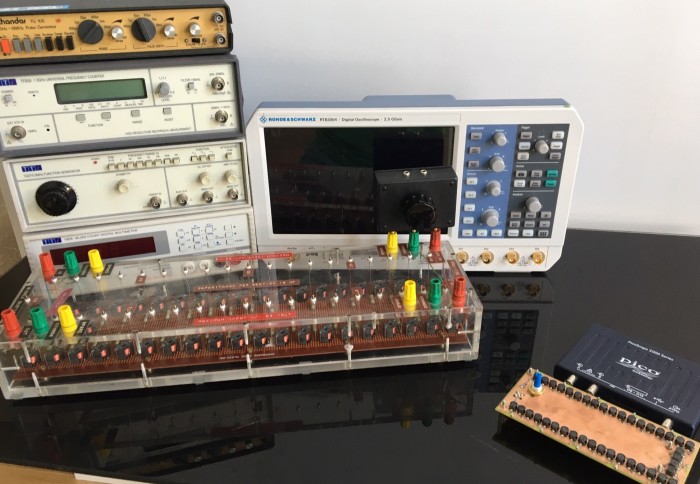
Physics equipment used in a lab setting (left) and that which will be mailed to students for remote learning (right)
A student-staff innovation team in the Department of Physics has transformed bulky experiments into portable labs that can be mailed across the world.
The development of the portable experiments comes as the College prepares to reopen for a new academic year. In response to COVID-19 students will be warmly welcomed back to campuses but social distancing guidelines will mean that teaching will be delivered as a combination of on-campus (in-person) and remote learning (online) for the Autumn term, with programme-specific variations in later terms.
Imperial calls this a ‘multi-mode’ approach which means on-campus learning, including laboratory work, will be combined with the benefits of its remote counterpart. If a student is unable to travel to campus for Autumn term, the College has made plans for them to receive high-quality and engaging remote learning.
A new era
The College has been developing a wide range of innovative educational experiences for a number of years prior to the pandemic. Many of these developments have prepared staff and students well for the remote aspect of multi-mode learning, and complement the world-leading facilities that can be found on-campus.
With funding from The Royal Society, the Department of Physics team has contributed their own expertise and creativity to ensure their curriculum works well in a variety of learning environments.
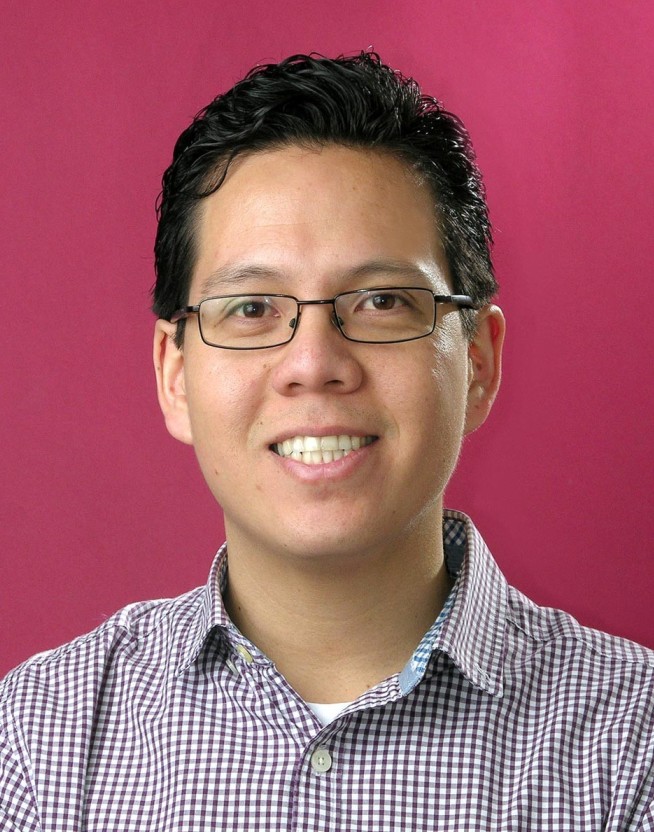
Dr Francisco Suzuki-Vidal, Royal Society University Research Fellow, said: "These experiments have been a staple for our Physics undergraduates for many years. Transforming them into something that would work in a home environment was a daunting yet exciting prospect.
"The end result is a 'Lab in a Box' which allows a student who may be unable to attend campus to gain the exact same knowledge and skills as a student physically on campus and in a real laboratory."
The 'Waves' experiment is traditionally conducted in the second year of a Physics undergraduate programme, and the learning outcomes focus on students understanding:
- The behaviour of electrical waves in an experiment consisting of a transmission line which is modelled as a circuit made of capacitors and inductors.
- The thermal properties of a material by using experimental data in which a sample undergoes periodic heating and cooling.
- How Fourier analysis can be used to explain the behaviour of a periodic variable in the case of electrical circuit and thermal experiments.
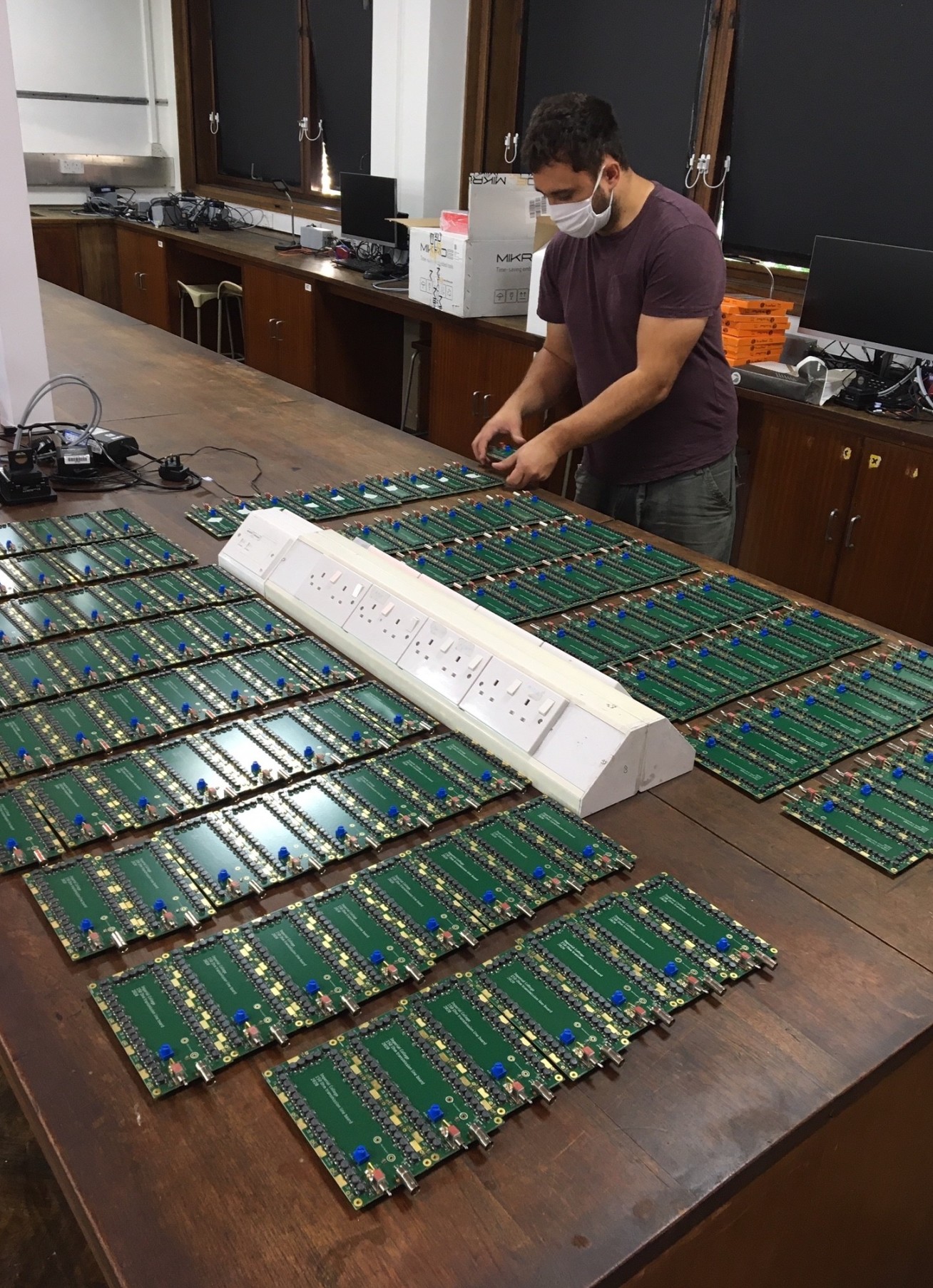
Professor Alice Gast, President of Imperial College London, was excited to see the experiments when she visited the Department recently. Professor Gast said: "Imperial's 'multi-mode' promise to new and returning students is being fulfilled. I am impressed by the creativity and ingenuity that our students and staff have shown to bring the experiments into students’ homes. Those working remotely, still have access to the very best equipment and expertise we have to offer.
"A lab that can be delivered to a student's front door, carefully curated by their student peers and our staff, introduces an element of flexibility and accessibility to our teaching which could hardly have been imagined a few short years ago."
Student expertise
Carolina de Almeida Rossi, a third year Physics undergraduate, was a key member of the project team from the outset. Over the course of seven weeks she provided the student perspective on how the 'Lab in a Box' would work in a home setting.
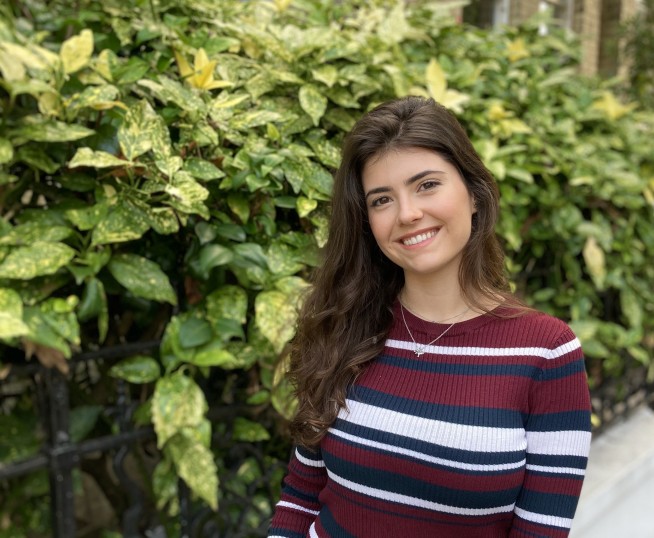
Carolina said: "The lab will be a mixture of data analysis and practical hands-on work. The equipment designed over summer makes it possible for the experiment to accommodate students wherever they are, keeping social distancing while still being part of a small support group.
"This was all done aiming to make the learning process as smooth as possible. The students could still think and act independently while focusing their attention on the right things. We believe that anticipating their Aha! moment could leave them more time to delve deeper into the particular aspects of the experiment that they enjoyed the most, which might make the whole experience a lot more fun!"
A lab in every home
With the successful development of the experiments, the Department now aims to develop further 'Boxes', while carefully monitoring feedback on what students think of those launched at the beginning of the new academic year.
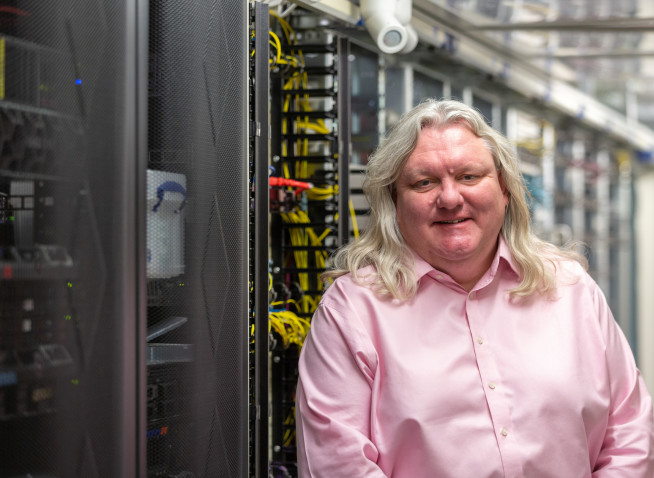
Professor David Colling, Department of Physics, said: "While I hope that we will eventually be able to return to an on-campus learning experience, it is clear that remote learning will be an important part of our teaching now and in the future."
"Adapting to this new reality has made us all consider new ways of teaching. Condensing these experiments into such a portable format has been a real success for the project team, and I'm delighted we've had such significant student involvement in getting this right."
Article supporters
Article text (excluding photos or graphics) © Imperial College London.
Photos and graphics subject to third party copyright used with permission or © Imperial College London.
Reporter
Murray MacKay
Communications Division